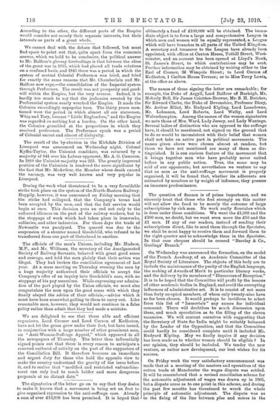We cannot deal with the debate that followed, but must
find space to point out that, quite apart from the economic answer, which we hold to be conclusive, the political answer to Mr. Balfom's gloomy forebodings is that between the close of the great war in 1815, which had placed all trade relations on a confused basis, and 1845 there was a period in which the system of mutual Colonial Preference was tried, and tried for exactly the same reasons that Mr. Chamberlain and Mr. Balfour now urge,—the consolidation of the Imperial system through Preference. The result was not prosperity and good- will within the Empire, but the very reverse. Indeed, it is hardly too much to say that the jealousies created by the Preferential system nearly wrecked the Empire. It made the Colonies exceedingly unpopular here. The thirty years men- tioned were the period in which almost all our statesmen, Whig and Tory, became " Little Englanders," and the Empire was regarded as nothing but a burden. On the other band, the Colonies grumbled at the proportions in which they received preference. The Preference epoch was a period of Colonial unrest and almost of disloyalty.






































 Previous page
Previous page